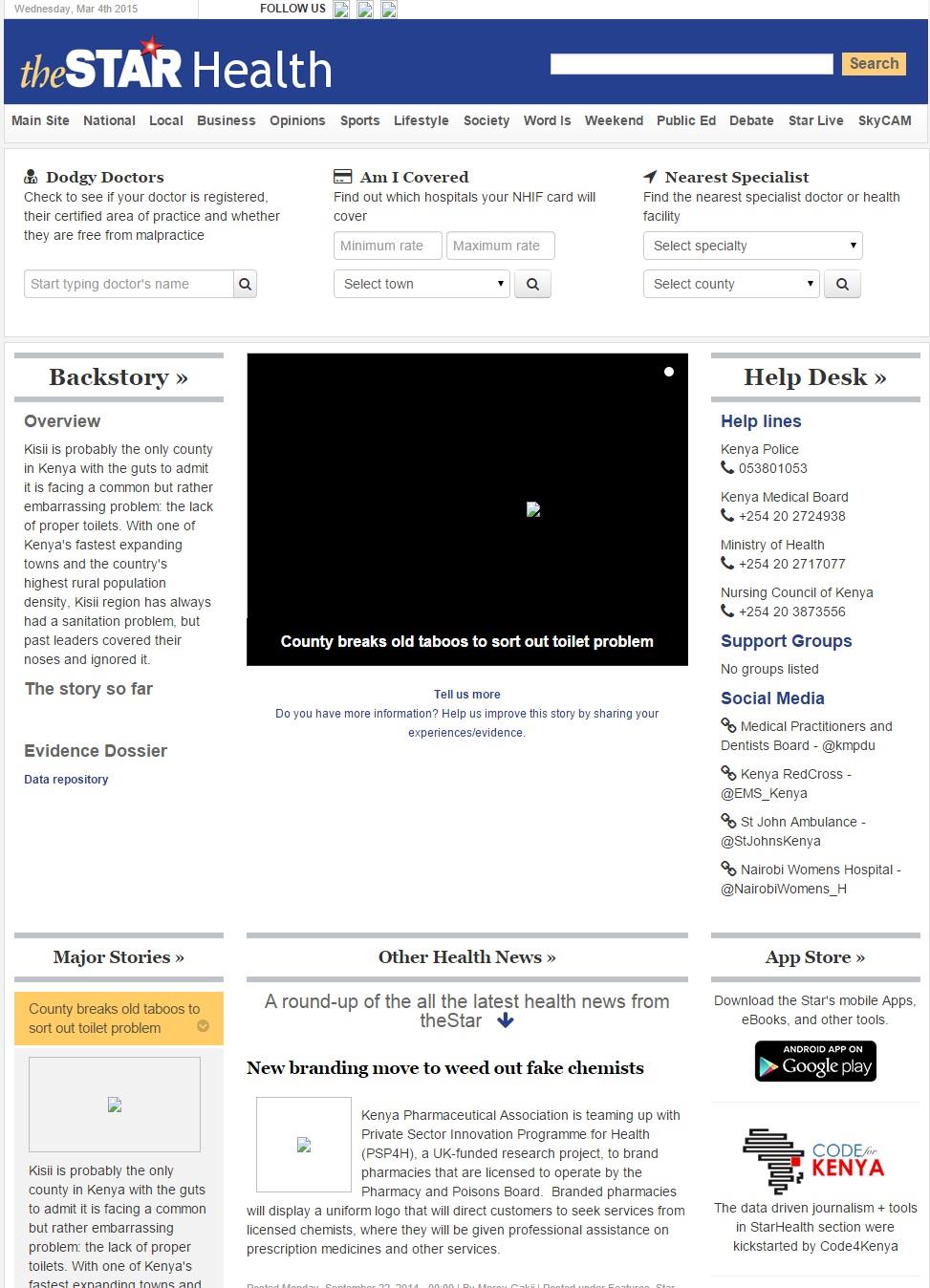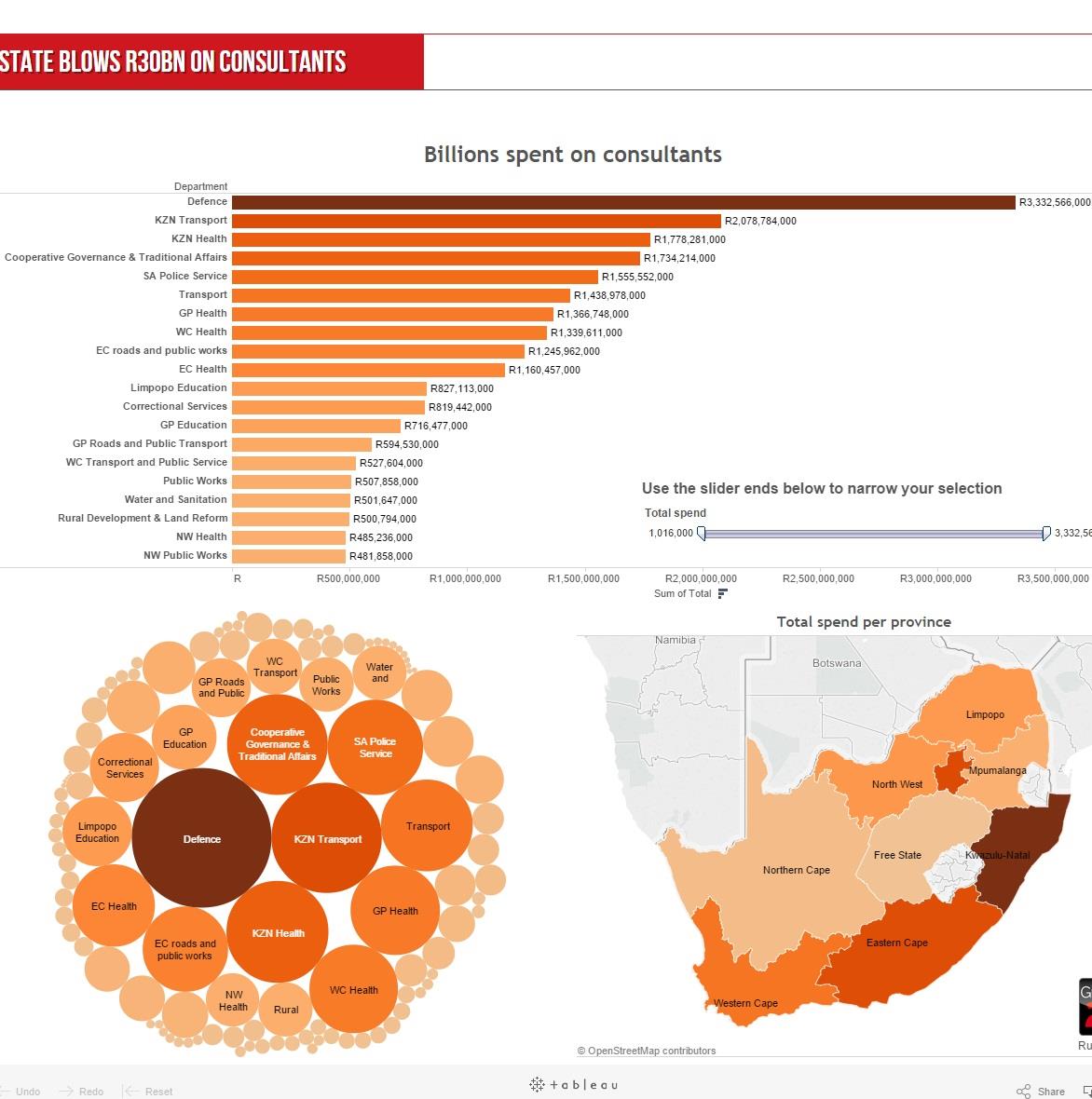Open data movement sees Africa’s media seizing new opportunities
Besides the fact that the tools that were required were expensive and difficult to use, getting hold of data – including official data paid for by taxpayers – was often difficult because it was closely guarded.
But that has changed, thanks to the growing Open Data movement and a host of free, simple-to-use apps and tools available to journalists and publishers, ushering in an exciting new era of data-driven storytelling and innovative ways to drive engagement and grow audiences.
Some countries have changed tack and made the their data more easily available, like the portals launched by the governments of Morocco and Kenya after they woke up to how it could help kick-start new tech economies and create jobs.
Cape Town recently became the first African city to launch an open data policy, although this was somewhat dampened by a decision to appoint a committee of “experts” to rule on requests for data. Nevertheless, it heralded a new era that will allow media, researchers and ordinary citizens to access to a treasure trove of rich information, ranging from health and transport and the many other areas that are an integral part of running a mega city.
Importantly, it will mean that developers can use the data to build useful apps that will grow businesses, create jobs and boost the local economy. So what does that mean for media in Africa where, as in the rest of the world, publishers face falling revenues and circulations, while battling to remain relevant and profitable?
A lot, if they seize the opportunities this offers for richer digital storytelling, growing their online communities and opportunities for new revenue streams. While African newsrooms lag behind the better resourced newspapers like the New York Times and UK Guardian, behind the scenes much work is being done to imbed a culture of data journalism in the continent’s news rooms.
This includes developing simple tools that ordinary people can use to access information which allows them to make informed decisions on issues affecting their lives, says leading data evangelist Justin Arenstein, who works with media across Africa.
An excellent example is the Star Health suite of user-friendly tools developed for Radio Group Africa.

Kenya’s third largest media house. All user requests for information are fulfilled via a premium service SMSs, opening an important new revenue stream for the group.
On the journalism front, it has meant that huge amounts of data can be simplified and visualized to tell complicated stories in an accessible way, like this recent package in City Press in South Africa that looked at the billions being blown by the government on consultants.

This Valentine’s Day visualisation, which turned boring official South African marriages stats into an interactive visualisation, offered a fresh take on the tired stories churned out year after year on 14 February. And this interactive visualisation proved how small municipalities along national roads in South Africa are filling their coffers with revenue from speeding fines.
“The investment on a one-off projects is high, so it is important that the tools that are built live on, that newsrooms can use to report on issues and people can act on,” says Code for South Africa head Adi Eyal.
Much of training of journalists is being done by donor funded, non-profit civic coding organisations like Code for Africa, Code for Kenya, and Code for South Africa. All of them are also working closely with media houses to help them develop new tools, or customise existing, free open source ones for local conditions. Similar initiatives are about to launch in Nigeria and Ghana, with plans for other African countries also in the pipeline.
The building blocks are slowly being put in place as the “root stock” – data sets from across Africa – is collected and collated on the African Open Data portal making them available to newsroom and civic coders to build useful applications and tools.
South Africa Code4SA has also built a series of open, machine-readable, data rich application programming interfaces (APIs) on top of which media can quickly and cheaply build news applications, software and web pages. It has resulted in tools like the data-rich wazimap, which draws on elections and census data and enables journalists and activists to dig deep into communities. People’s Assembly which connects ordinary people with the nuts and bolts of politics and with the MPs who represent them in Parliament, is another useful tool for both journalists and citizens.
It is one of numerous projects across Africa funded by The Indigo Trust, which makes small, high risk seed grants to African entrepreneurs and organisations.
“Our model is fund locally based organisations using mobile and web tech for public good and to stimulate change. Our main interest is in enabling citizens to hold authorities to account,” says Loren Treisman, Executive of the Trust, which is active across the length and breadth of Africa.
So, while Africa media has generally been slow to grasp the opportunities available, those who have are seeing the new opportunities that are available to them in this time of disruption and change.
The future is here, all we need to do now is grasp it.
More like this:








